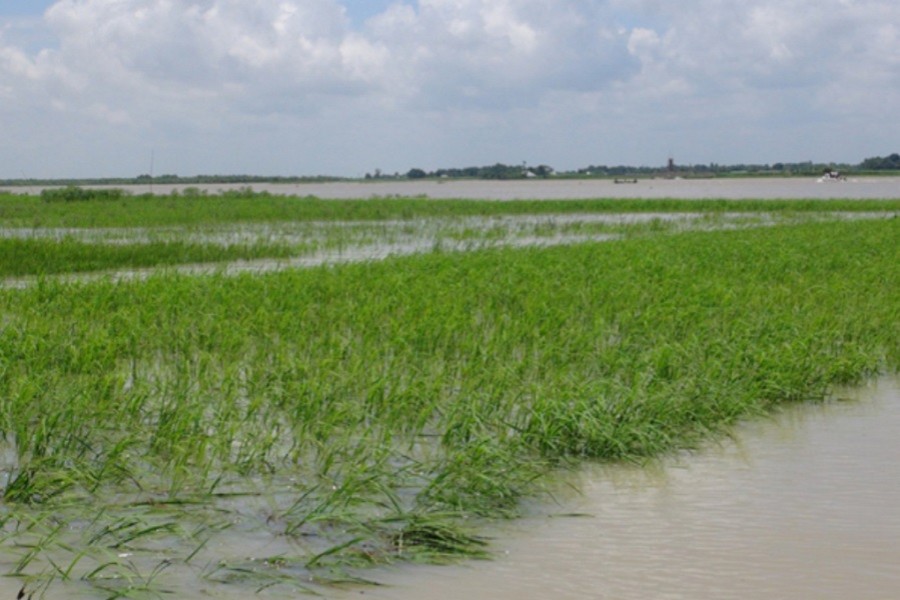
Published :
Updated :

Over the past six months, farmers and their croplands have been subjected to more adversities than they possibly can bear up with. These include the recent floods, preceded by downpour of March-April and the unrelenting pandemic which have had their effects on the lives of farmers and the crops they had grown, produces of their hard labour. But one might pause a little before drawing any quick conclusion about the cumulative impact of so many adversities at a time on them or their crops. One needs also to consider the resilience they have been demonstrating all through in the face of such reverses since the past. In specific terms, the persisting floods have their damaging impact on the seedbeds. It might lead the farmers to delay Aman cultivation. So, the Aman farmers will need immediate government support in terms of cheap loans to enable them to prepare floating seedbeds. Also, they will need the supply of inputs at a reduced cost.
Against this backdrop, a perception has been created among some that the country may face food shortage. Many including some experts fearing crop failure have warned the government of possible shortfall in paddy production. They even urged the government to go for immediate rice import from the international market to create a buffer stock vis-à-vis the perceived production deficit. But only correct statistics can say whether such fortuitous developments may lead to any big shortfall in crop production. Most government sources, however, see no reason for such eventualities.
The government agencies like Agriculture Marketing Department and the Trading Corporation of Bangladesh (TCB) think rice production in this boro season will be as high as 20.26 million tonnes setting an all-time high record. Based on its research data that boro yield has increased by 3.54 per cent despite the decline in the acreage under cultivation, the Bangladesh Rice Research Institute (BRRI) has some good news to offer. In fact, BRRI sees a surplus production of 5.50 million tonnes of boro rice until November meaning there will be no shortage of rice until that time. True, the government's food department has not been able to reach its target of procuring 1.15 million tonnes of rice by the end of August. Which is why, it has extended he procurement time until the mid-September.
About the reasons for missing the procurement target, price has been an issue. There are reports that coarse rice is being sold at a higher price at the mill gate than the government-offered one. Despite such concerns, the government is inclined to feel confident of the outlook going forward and hopes to meet all contingencies with its stock including 1.0 million tonnes of rice. Admittedly, the pandemic and the unpredictability of weather conditions have been behind a recent spike in rice price in the international market. Rice trading countries including Vietnam, Thailand and India are learnt to have been selling their parboiled rice at about 15 per cent higher prices than last year's.
All such developments should be a reason for the government to be cautious.
But unnecessary alarm based on the perceived fear of crop failure is unhelpful. So is also any uncalled-for complacency. In any case, the authorities should be circumspect about the issue. It should be in a dialogue with the experts and specialists in the field before taking any decision on food purchase.


 For all latest news, follow The Financial Express Google News channel.
For all latest news, follow The Financial Express Google News channel.